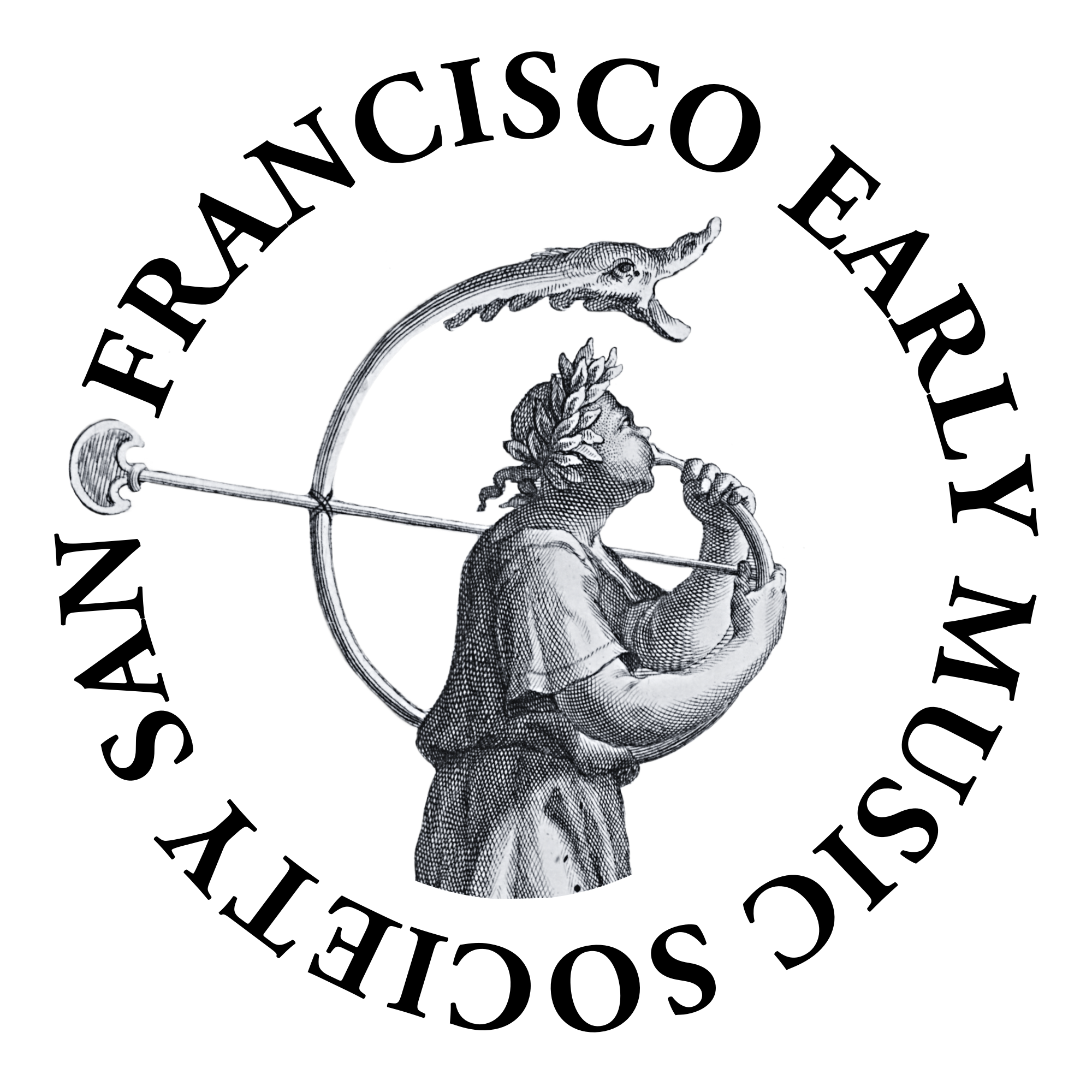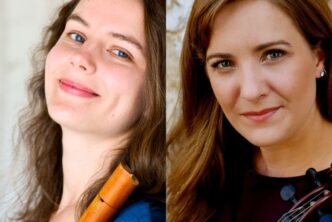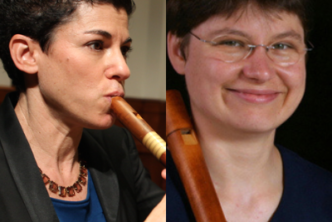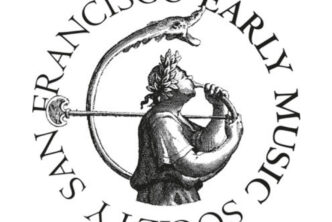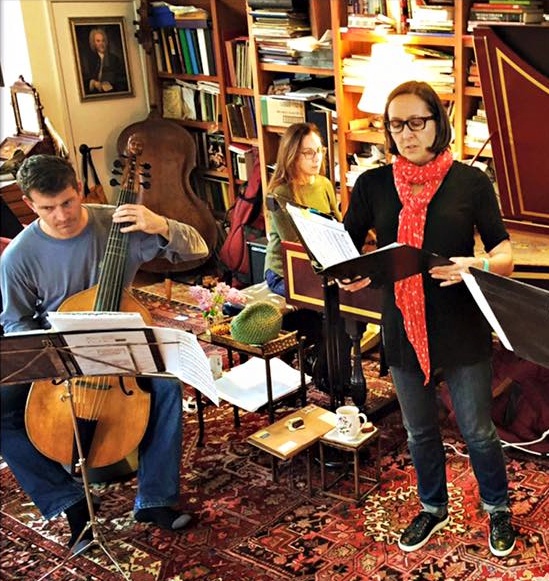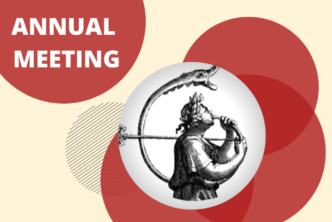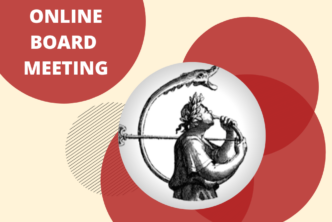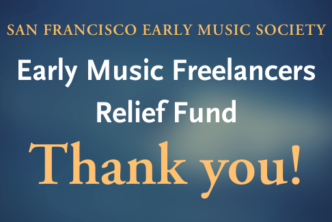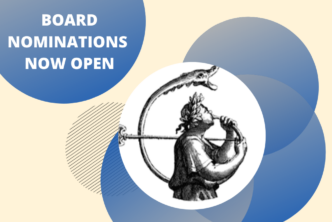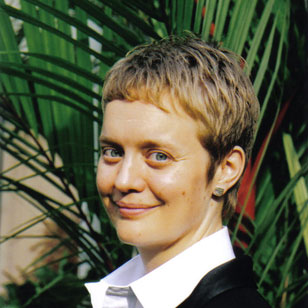Seven Tunes for Seven Tears — Plumbing the Depths of Dowland
The SFEMS concert series resumes the weekend of January 10–12 with an appearance by Canada’s premier viol consort, Les Voix Humaines (Mélisande Corriveau, Margaret Little, Felix Deak, Marie-Laurence Primeau, and Susie Napper, violas da gamba) with the renowned Nigel North, lute. Les Voix began some thirty years ago as a duo between Susie Napper and Margaret Little. After a very productive and innovative two decades, the duo was joined by Mélisande Corriveau and Felix Deak to form Les Voix Humaines Consort of Viols, with the aim of taking a refreshing look at the huge repertoire for multiple viols. Marie-Laurence Primeau is the most recent member. London native Nigel North, who joins the consort for these performances, has been Professor of Lute at the Early Music Institute, Indiana University, for the past two decades, and is considered one of the world’s greatest exponents of his instrument.
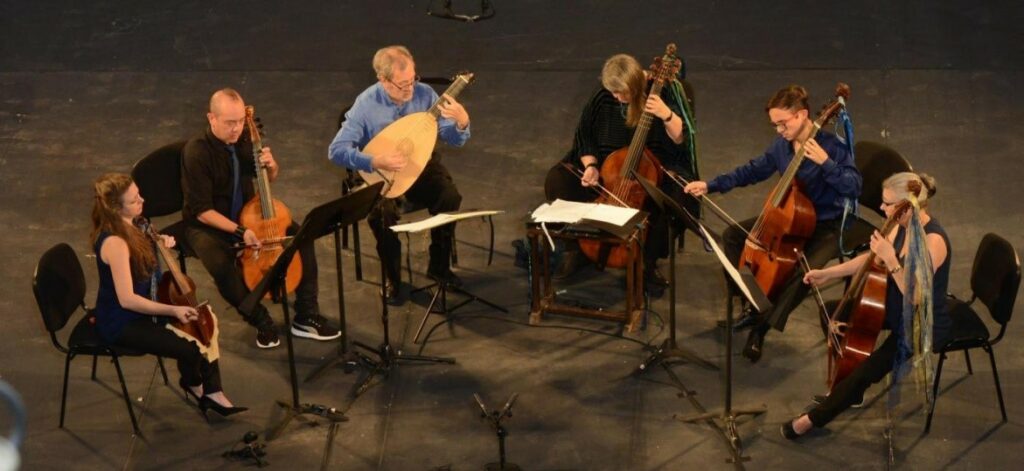
Their SFEMS concert will be an exploration of one Elizabethan England’s most iconic works, the great Pavan Lachrimæ of John Dowland. The piece was for a time the undisputed hit song throughout Europe, transcribed and arranged by various composers for different instruments. Dowland himself created a series of intricate works based on his famous tune, and made them the title works of his 1604 collection, Lachrimæ, or seaven Teares figured in seaven passionate Pavans […] set forth for the Lute, Viols, or Violons, in five parts. These will form the basis of the January program, along with a few galliards and other, lighter pieces for contrast. Susie Napper contributed the following notes on Dowland and his most famous composition.
* * *
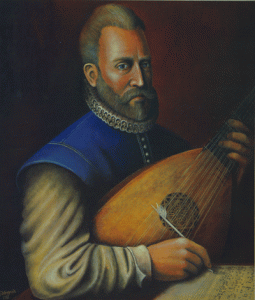 Little is known about John Dowland’s beginnings. He was born in 1562 or 1563, and there are arguments for both London and Dublin as his place of birth. His enviable international career started in 1580 when he became lutenist in the service of Sir Henry Cobham, Queen Elizabeth’s ambassador to the French court in Paris. Here he converted to Roman Catholicism, a move that would have lifelong consequences.
Little is known about John Dowland’s beginnings. He was born in 1562 or 1563, and there are arguments for both London and Dublin as his place of birth. His enviable international career started in 1580 when he became lutenist in the service of Sir Henry Cobham, Queen Elizabeth’s ambassador to the French court in Paris. Here he converted to Roman Catholicism, a move that would have lifelong consequences.
He attributed his unsuccessful bid to serve at Elizabeth’s court to his attachment to his Catholic faith. Elizabeth, a great admirer of Dowland’s musicianship, described him as “a man to serve any Prince in the world but an obstinate Papist!” He was obliged to pursue a very successful career in Europe while his family remained on the “precious stone set in a silver sea.”
Highly sought after as the foremost lutenist of his time, Dowland’s “heavenly touch upon the lute doth ravish human sense,” wrote the poet Richard Barnfield. In 1598 Dowland became one of the highest paid servants to Christian IV of Denmark, whose musical court was the envy of Europe. Dowland’s huge salary allowed him to travel regularly to England to publish his latest volumes and to see his family, to the ire of the King of Denmark!
During his European adventure, Dowland, like other seemingly innocent musicians, was also involved in espionage. On top of his musical duties, he acted as a spy for Sir Robert Cecil, Queen Elizabeth’s Secretary of State, and was even offered a handsome sum by the Pope to spy on some heinous, Roman intrigue. He turned down that attractive proposition through a sense of loyalty to his Queen.
In 1606 Dowland was released from his duties at the Danish court and returned to England to serve as a member of James I’s musical entourage until his death in London in 1626.
Dowland’s Lachrimæ, or Seaven Teares, Figured in Seaven Passionate Pavans, featuring the saddest, descending tetrachord heard throughout the pavans, is an iconic work that defies the 21st-century concept of sound bites or tweets! Slow and rich in harmony with time for contemplation, the pavans unfold with increasingly exquisite and dissonant harmonies.
The poem:
Flow my tears, fall from your springs,
Exil’d for ever let me mourn;
Where night’s black bird her sad infamy sings,
There let me live forlorn…
Down vain lights, shine you no more!
No nights are dark enough for those
That in despair their last fortunes deplore.
Light doth but shame disclose.
Never may my woes be relieved,
Since pity is fled;
And tears and sighs and groans my weary days, my weary days
Of all joys have deprived.
From the highest spire of contentment
My fortune is thrown;
And fear and grief and pain for my deserts, for my deserts
Are my hopes, since hope is gone.
Hark! you shadows that in darkness dwell,
Learn to contemn light
Happy, happy they that in hell
Feel not the world’s despite.
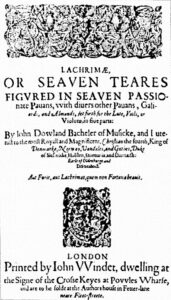 Flow my tears, possibly penned by Dowland himself, appears first in his Second Booke of Songs or Ayres dated 1600. Based on the dance form of the pavan, Dowland composed several versions of the piece for solo lute, the first, Lachrimæ Pavan, appearing in 1596. Other composers borrowed the theme; John Bennet in his madrigal Weep oh mine eyes and Dowland’s Scottish colleague in Denmark, celebrated viol player, composer and mercenary soldier Tobias Hume, in his What greater grief, to name but a few.
Flow my tears, possibly penned by Dowland himself, appears first in his Second Booke of Songs or Ayres dated 1600. Based on the dance form of the pavan, Dowland composed several versions of the piece for solo lute, the first, Lachrimæ Pavan, appearing in 1596. Other composers borrowed the theme; John Bennet in his madrigal Weep oh mine eyes and Dowland’s Scottish colleague in Denmark, celebrated viol player, composer and mercenary soldier Tobias Hume, in his What greater grief, to name but a few.
Published in London in 1604, during Dowland’s years in Denmark, Lachrimæ or Seaven Teares is dedicated to Anne, Queen of Denmark. The title page includes the epigram “Aut Furet, aut Lachrimat, quem non Fortuna beavit,” or, “He whom Fortune has not blessed either rages or weeps.” In the preface Dowland writes, “Though the title doth promise teares, unfit guests in these joyfull times, yet no doubt pleasant are the teares which Musicke weepes, neither are teares shed always in sorrow, but some time in joy and gladnesse.” The collection also includes “divers other pavans, galliards and allemands,” which, in our concert, alternate with the Lachrimæ pavans and exquisite lute solos on which Dowland’s reputation was built.
Dowland’s Lachrimæ has become canon in the annals of consort music. “Unfit guests in these joyful times,” these seven tears of extreme intensity are lamentations beautifully expressing the deepest melancholy of the soul!
This performance is significantly different from most in that the music is ornamented in a style appropriate to the period and in defiance of a certain modern Puritanism that demands total adherence to the written page. The embellishments add expressive elegance and musical freedom to the performance that we hope enhances the audience’s “joy and gladnesse”!
* * *
SFEMS presents the Les Voix Humaines at 8:00 p.m., Friday, January 10, at First Presbyterian Church, 1140 Cowper Street at Lincoln, in Palo Alto; 7:30 p.m. Saturday, January 11, at St. John’s Presbyterian Church, 2727 College Avenue, in Berkeley; and 4:00 p.m. Sunday, January 12, at Church of the Advent, 261 Fell Street, in San Francisco. Tickets may be purchased online, through the SFEMS box office at 510-528-1725, or at the door 45 minutes before each performance.

